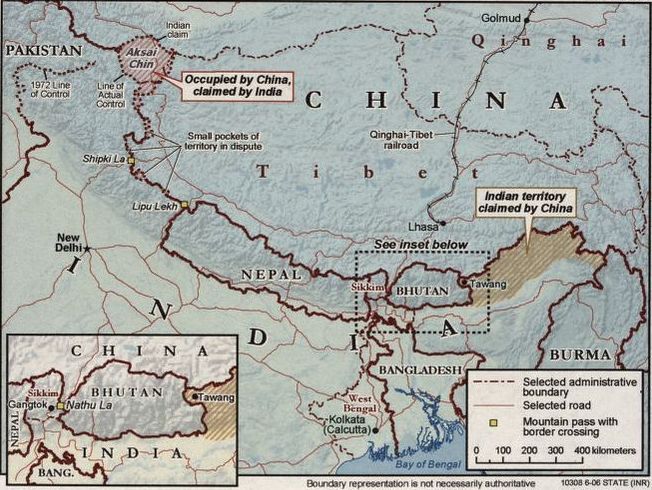
A journal has retracted a 2020 paper about looking for “suspicious activities” on the India-China border — including an incursion in which 20 Indian soldiers were reportedly killed – citing “legal reasons.”
The abstract in Springer Nature’s Journal of the Indian Society of Remote Sensing, which alleges that the soldiers were “brutally killed,” is rife with grammatical and punctuation errors:
According to the agreement of border sharing between India and China, China was supposed to be posted till finger 8 position and India till finger 4 position and between the finger 8 and finger, 4 was considered no man’s land in which only patrolling is allowed. But in recent days, chinese has crossed finger 8 position and has set up its camp near finger 4 position means in no man’s land, therefore, violating the agreement and thus resulting in a critical situation between two countries. Also on 15th June 2020, a group of soldiers went into their camp for sorting this issue of border sharing but were brutally killed by Chinese soldiers in which 20 of our soldiers lost their lives. Therefore, taking into consideration the current situation, it is now very important to monitor and analyze the activities of the Chinese army so that India can prepare itself for any further problems. Surveillance is not about detecting objects in an image but to analyze suspicious activity in a scenario. Therefore, the proposed surveillance dashboard can be used to analyze the activities done by the Chinese army within a specific number of days when inputted satellite images. The stage of a manual analysis of these activities will be reduced. The system is based on Content-Based Image Retrieval using deep learning with real-time feature extraction property.
(For more on the June 2020 incident, see this story from the BBC, and for more on “Finger 4” and “Finger 8,” see this story from the Times of India.)
The notice is vague:
The Editor-in-Chief has retracted this article because it was published in error before the peer review process was completed. The content of this article has been removed for legal reasons. The authors have been offered to submit a revised manuscript for further peer review. All authors agree with this retraction.
Aditya Kakde, of UPES in Dehradun, India and the corresponding author of the paper, did not respond to our request for comment.
We asked Shailesh Nayak, the editor in chief of the journal and the director of the National Institute of Advanced Studies at the Indian Institute of Science Campus in Bengaluru, for more details, including when the paper was retracted and what “legal reasons” referred to. He said only:
We are looking into.
In the meantime, despite what the retraction notice says, the paper remains available.
Like Retraction Watch? You can make a one-time tax-deductible contribution by PayPal or by Square, or a monthly tax-deductible donation by Paypal to support our work, follow us on Twitter, like us on Facebook, add us to your RSS reader, or subscribe to our daily digest. If you find a retraction that’s not in our database, you can let us know here. For comments or feedback, email us at [email protected].
https://rd.springer.com/article/10.1007/s12524-020-01267-5
Received
06 November 2020
Accepted
10 November 2020
Published
24 November 2020
Such a fast review and publication process, interesting.
Sometimes Springer will treat a “revise and resubmit” this way. I had a paper that was submitted in May, reviewed and sent back. The second time I submitted it, it was accepted in a week. The record only shows the second submission.
Technically that is correct though, as it *is* considered a new submission, and not a revision. Maybe new categories “first version received” and “this version received” need to be introduced.
The journal editors are all from India. Since the paper content is supporting a pro-India perspective on the incident one can speculate that there was some bias that led to an improper review process.